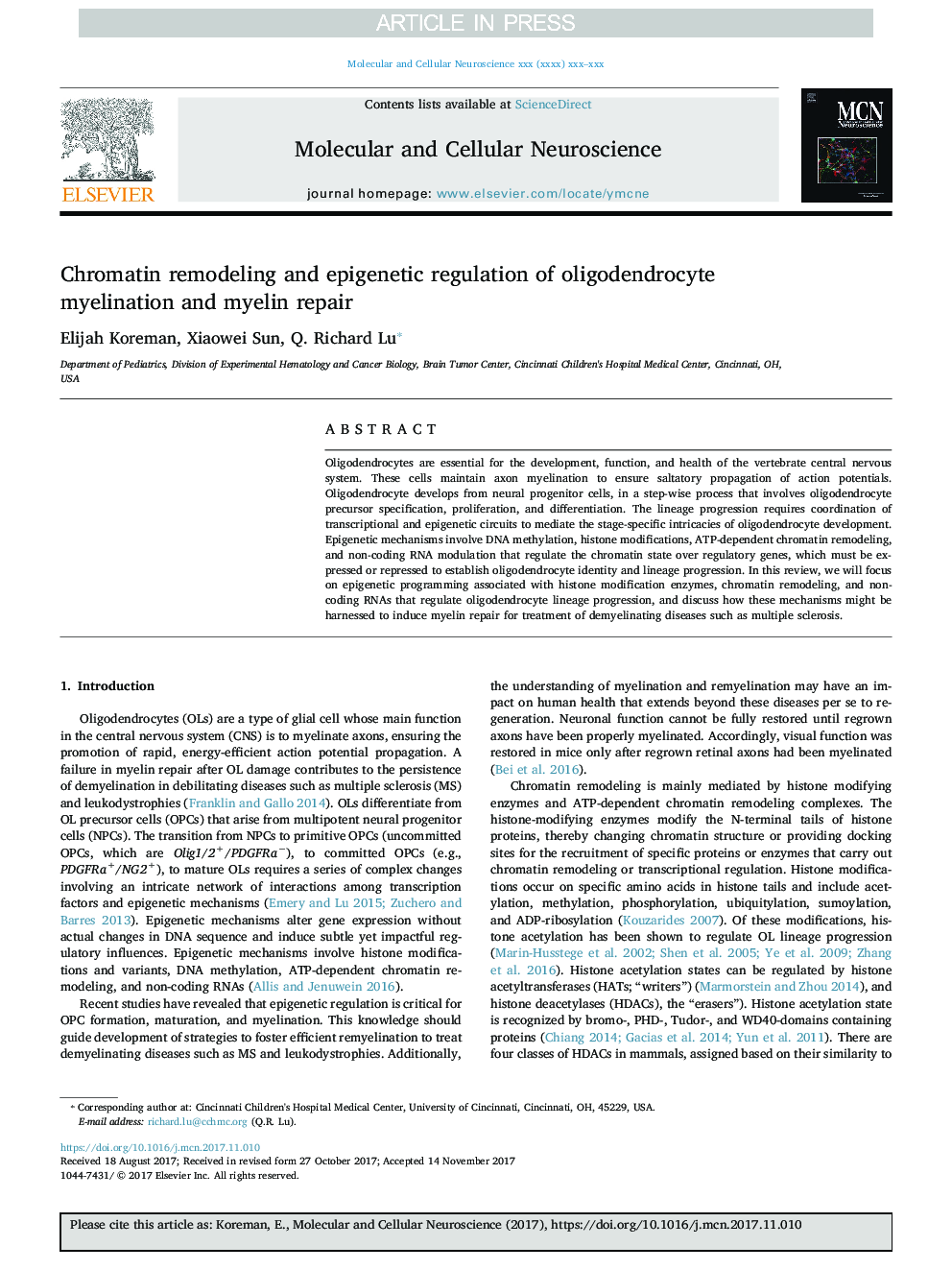| Article ID | Journal | Published Year | Pages | File Type |
|---|---|---|---|---|
| 8478400 | Molecular and Cellular Neuroscience | 2018 | 9 Pages |
Abstract
Oligodendrocytes are essential for the development, function, and health of the vertebrate central nervous system. These cells maintain axon myelination to ensure saltatory propagation of action potentials. Oligodendrocyte develops from neural progenitor cells, in a step-wise process that involves oligodendrocyte precursor specification, proliferation, and differentiation. The lineage progression requires coordination of transcriptional and epigenetic circuits to mediate the stage-specific intricacies of oligodendrocyte development. Epigenetic mechanisms involve DNA methylation, histone modifications, ATP-dependent chromatin remodeling, and non-coding RNA modulation that regulate the chromatin state over regulatory genes, which must be expressed or repressed to establish oligodendrocyte identity and lineage progression. In this review, we will focus on epigenetic programming associated with histone modification enzymes, chromatin remodeling, and non-coding RNAs that regulate oligodendrocyte lineage progression, and discuss how these mechanisms might be harnessed to induce myelin repair for treatment of demyelinating diseases such as multiple sclerosis.
Related Topics
Life Sciences
Biochemistry, Genetics and Molecular Biology
Cell Biology
Authors
Elijah Koreman, Xiaowei Sun, Q. Richard Lu,
